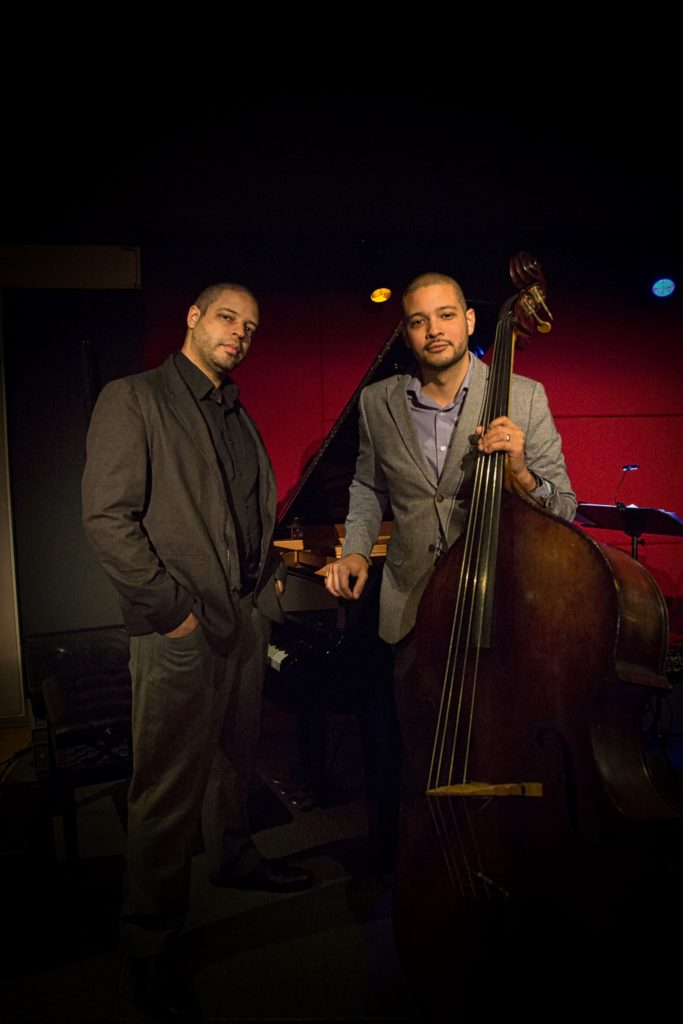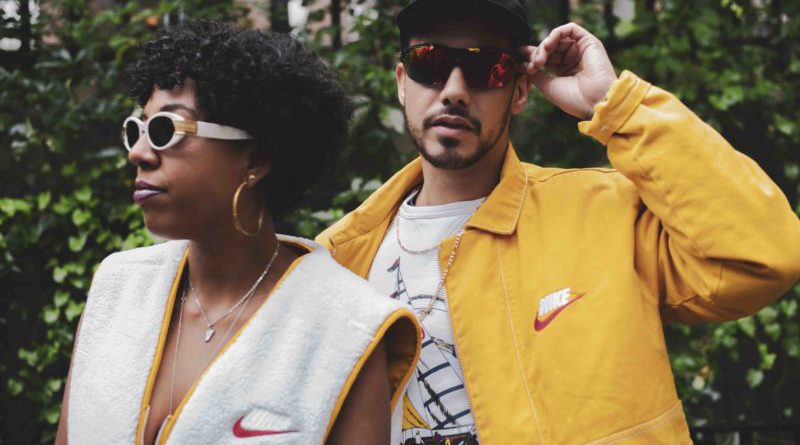INTERVIEW: Learn about the history of Caribbean immigration at Harlem Stage concert
Photo: Circa ’95 features Patty Dukes and Reph Star, and they will perform March 23 at Harlem Stage. Photo courtesy of the artist / Provided by GOGO PR with permission.
Carnegie Hall is currently celebrating many different cultures and the people of the world who have come to the United States over the years. The festival is called Migrations: The Making of America, and several events are planned throughout the city.
One of the highlights is this weekend’s double-bill concert at the Harlem Stage Gatehouse. The event, featuring the musical offerings of The Curtis Brothers and Circa ’95, celebrates Caribbean immigration to El Barrio (also known as Spanish Harlem) and will feature spoken word, hip-hop and Afro-Latin jazz.
In partnership with the Caribbean Cultural Center African Diaspora Institute, Harlem Stage hosts the concert Saturday, March 23 at 7:30 p.m.
Circa ’95 consists of Reph Star and Patty Dukes, whose cultural background is Puerto Rican and Dominican by way of the Bronx and Washington Heights. Their style of hip-hop seamlessly rhymes English and Spanish words, and the lyrics on this evening will focus on their families’ journey to the United States.
The Curtis Brothers, featuring Zaccai Curtis and Luques Curtis, will explore West Africa’s musical contributions and influences in the United States, by way of the Caribbean. Their selections will focus on rhythms and styles that evolved from the times of the African slave trade.
The full concert is called Uptown Nights: The Curtis Brothers and Circa ’95 — Wepa! Movement, Culture and Music. Tickets are $25.
Recently Hollywood Soapbox exchanged emails with Circa ’95 and The Curtis Brothers. Questions and answers have been slightly edited for style.
Reph Star and Patty Dukes, of Circa ‘95
Why was it important for you to be included in this expansive project called Migrations: The Making of America?
It’s a wonderful opportunity for us to be a part of this project. We are living in difficult times. America is made up of many people from all over the world that traveled and migrated for a better life. The story of how people struggled to arrive in America deserves to be documented.
For us as Afro-Puerto Rican and Dominican artists from New York City, we speak about where we come from and share the stories of how our families arrived. We understand that we have a long road ahead, but using music and art to be able to share our story will only help those in the future trying to make that same journey.
What can audience members expect at your performance at Harlem Stage?
Expect a family reunion. We are gonna let loose, have some fun and listen to some good music — using visuals to highlight our stories as well as using props. We hope to curate a space for a thoughtful conversation about how we got here and where we are going.
Are your contributions for the performance very personal and about your families’ own history?
Yes, we have a lot of research and found items like the actual suitcases that Reph’s family traveled with from San Juan, PR, to New York City.
From old photographs to recorded interviews — we’ve gathered our history but also through our music we share the experience of what it’s like for us to be Afro-Latino/a people living in New York City.
When did you first fall in love with hip-hop?
We fell in love with hip-hop growing up in NYC. It’s the soundtrack to our life. When we would hear it playing through the radio or a mixtape we would memorize the lyrics and sing along. Patty would grab her hairbrush and just go for it in the mirror. She was a closet emcee. She always loved the energy and passion the artists gave.
We enjoyed listening to artists like Nas because he made us feel like it was OK to talk about where you came from. Be hood and intelligent. The struggles are what make us who we are. An emcee has a story to tell, and we always knew we wanted to tell those stories.

Zaccai Curtis and Luques Curtis, of The Curtis Brothers
What can audience members expect at your performance at Harlem Stage?
The Curtis Brothers Quartet will expose the connections between our music and the music of West Africa. These rhythms, harmonies and concepts can’t be avoided when performing and addressing American music. Our main focus is jazz, Afro-Caribbean jazz and R&B, which are heavily rooted in Africa.
Could you describe the musical contributions of West Africa and its influences on American music? Have you had to conduct a lot of research?
The Afro-Cuban 6/8 that we use is clearly developed from its African-base form. Abacua and Bembe come from our roots in the Yoruba musical tradition that was later introduced and adapted for a jazz band by Dizzy Gillespie and Chano Pozo in the 1940s. West African rhythms can also be traced through most Caribbean music from Puerto Rican bomba and plena to reggae.
Because the slave trade distributed Africans to Brazil, New Orleans and the Caribbean, you will find a strong connection between those places. The concept that American music uses, of a band playing and a soloist leading, may very well be adopted from African/West African musical tradition. The concept of clave can be observed in West-African music and is a concept that has permeated all American music.
The African history regarding the banjo is clearly documented with the early American music resembling the Akonting music from Senegal.
All these influences developed into cultural music such as country, rock, hip-hop, funk, blues, jazz, gospel and more. We have been performing this music for most of our lives, so this information has been accumulated throughout that time.
Why is it important to hear this music and understand these important musical lessons?
For a musician, it’s important to know why you are playing what you are playing. It adds a specific depth to your craft. Non-musicians may gain a stronger connection with the music after receiving information about it (though it’s not a requirement), so that they can enjoy and take part.
When did you first fall in love with music?
I think we all fall in love with music, especially the rhythmical elements, as babies. That’s why babies move to music and dance, early in life. It’s an instinct perhaps signifying that everything is safe. I’m not sure why, but the love and the resulting happiness is certainly there.
Anything else that you would like to mention?
We are very excited to present our music at Harlem Stage. I’m sure we can all appreciate the West African roots of American music and culture.
By John Soltes / Publisher / John@HollywoodSoapbox.com
Uptown Nights: The Curtis Brothers and Circa ’95 — Wepa! Movement, Culture and Music will be presented Saturday, March 23 at 7:30 p.m. at the Harlem Stage Gatehouse in Manhattan. Click here for more information and tickets.

